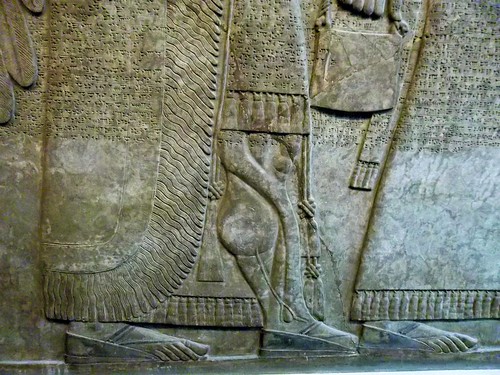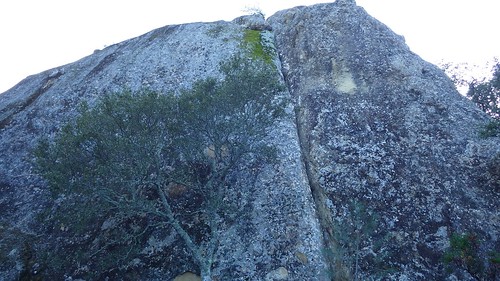Recently I chanced upon a slim volume of Chinese masters containing many surprising gems. I'm not much for Tang dynasty poets mostly due to wooden translations but Sikong Tu's instructional set of 24 poems on ars poetica has given me riches to contemplate. His work can apply to so much of the arts as well as those of our particular concern- tea, teapots, and even blog writing styles.
I present to you a few of his verses with my inadequate commentary but recommend readers to seek out the full translation in The Art of Writing- Teachings of the Chinese Masters.
 1. Masculine and Vital Style -
1. Masculine and Vital Style -
"As great calf muscle bulges in use, the spiritual body swells inside;"
Those mighty Menghai shengs with agressive qi readily come to mind along with Bulangs with a pugilistic bent. Such tea sessions for me are a confrontation where I always lose. I leave this style for the hardier drinkers among us.
(Incidentally Assyrian panels tend to depict over-developed calves to reinforce the power of their rulers. Those calves bulge even when not in use so you can only fear their terror when they do spring into action.)
2. Placid Style -
9. Decorative and Pretty Style
Sometimes a light hearted pretty tea is just the thing to cheer up a day and oolongs easily fit that bill. Jakub had sent a most lovely Jinuoshan Youle that was the most oolong style puerh I've come across. I enjoyed this pretty cup redolent of peach blossoms so I was taken aback this Jinuoshan was much reviled by Hobbes as an aberration.
11. Implicit Style
 This was the first page I opened by chance and those words were such a salve that day. Across the vast expanse of time and space, how could this poet express my inner state so keenly. Implicit arts rely much on the receiver to fathom it's hidden meanings. Perhaps in a brighter state of mind, I would have passed by these verses lightly. Many quieter puerh teas I find to be in the implicit style as I have to be receptive or I easily miss their meaning or interpret them as bitter.
This was the first page I opened by chance and those words were such a salve that day. Across the vast expanse of time and space, how could this poet express my inner state so keenly. Implicit arts rely much on the receiver to fathom it's hidden meanings. Perhaps in a brighter state of mind, I would have passed by these verses lightly. Many quieter puerh teas I find to be in the implicit style as I have to be receptive or I easily miss their meaning or interpret them as bitter.
14. Careful and Meticulous Style
15. Carefree and Wild Style
I've drunk a few wild and wooly Dehongs of this category. They don't have pretensions to be some other elevated tea. Some don't bother to hide or tame their wildness and so can give the drinker a bit of an adventure.
23 Big-hearted Expansive Style
I present to you a few of his verses with my inadequate commentary but recommend readers to seek out the full translation in The Art of Writing- Teachings of the Chinese Masters.
 1. Masculine and Vital Style -
1. Masculine and Vital Style -"As great calf muscle bulges in use, the spiritual body swells inside;"
Those mighty Menghai shengs with agressive qi readily come to mind along with Bulangs with a pugilistic bent. Such tea sessions for me are a confrontation where I always lose. I leave this style for the hardier drinkers among us.
(Incidentally Assyrian panels tend to depict over-developed calves to reinforce the power of their rulers. Those calves bulge even when not in use so you can only fear their terror when they do spring into action.)
2. Placid Style -
"Dwell plainly in calm silence,Teas of a peaceful disposition are dismissed for those wanting more of a "Masculine" or "Vigorous Style", but all styles have a time and a place. Such teas like Nannuo cakes are like a slow moving film about the Mongolian plains where very little happens.
a delicate heart sensitive to small things."
9. Decorative and Pretty Style
Sometimes a light hearted pretty tea is just the thing to cheer up a day and oolongs easily fit that bill. Jakub had sent a most lovely Jinuoshan Youle that was the most oolong style puerh I've come across. I enjoyed this pretty cup redolent of peach blossoms so I was taken aback this Jinuoshan was much reviled by Hobbes as an aberration.
11. Implicit Style
"Without a single word
the essence is conveyed.
Without speaking of misery
a passionate sadness comes through.
It's true someone hidden controls the world;
with that being you sink or float."
 This was the first page I opened by chance and those words were such a salve that day. Across the vast expanse of time and space, how could this poet express my inner state so keenly. Implicit arts rely much on the receiver to fathom it's hidden meanings. Perhaps in a brighter state of mind, I would have passed by these verses lightly. Many quieter puerh teas I find to be in the implicit style as I have to be receptive or I easily miss their meaning or interpret them as bitter.
This was the first page I opened by chance and those words were such a salve that day. Across the vast expanse of time and space, how could this poet express my inner state so keenly. Implicit arts rely much on the receiver to fathom it's hidden meanings. Perhaps in a brighter state of mind, I would have passed by these verses lightly. Many quieter puerh teas I find to be in the implicit style as I have to be receptive or I easily miss their meaning or interpret them as bitter.14. Careful and Meticulous Style
" This craft leaves tangible marks,I drank with Ira Mr. Gao's Yibang from Tea Urchin and you could tell the hand was involved creating something unique but you couldn't tell how.
but they are almost invisible."
15. Carefree and Wild Style
I've drunk a few wild and wooly Dehongs of this category. They don't have pretensions to be some other elevated tea. Some don't bother to hide or tame their wildness and so can give the drinker a bit of an adventure.
23 Big-hearted Expansive Style
"We live no more than a hundred years,
not too long before we depart.
Hapiness is bitterly short;
gloom and fretting abound.
Why not take a jar of wine
and each day visit the misty wisteria"
Of course we would substitue a pot of tea for that jar of wine. A feel-good crowd pleasing style which frees us from niggling over petty details of poor overpriced tea. It's not about even having a particularly choice jar of wine or tea but appreciating that we are alive now. With that I'll take a pot of placid tea out to my back garden.
You have made some nice observations :)
ReplyDeleteDon’t do that! Teavivre has excellent white tea cakes at reasonable prices, but use the gong Fu method, more tea less water, and you do not need any special equipment, only two bowls and if you need to, a strainer:
ReplyDeletehttps://www.teavivre.com/fuding-white-tea-cake.html